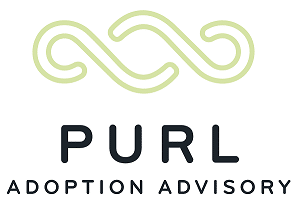
Happy Tax Day! If you’re a prospective adoptive family, you might be interested in learning more about the Adoption Tax Credit and how you might benefit from it if/when you incur expenses relating to the adoption of a child. The credit, which has been part of federal tax law since 1997, allows adoptive families to defray some of the costs incurred when they grow their families through adoption. It has helped bring together hundreds of thousands of families, many of whom would not have been able to grow their families through adoption without it.
The Adoption Tax Credit applies to all types of adoption (except step-parent adoption), including international, domestic private and domestic agency and public foster care adoptions. For domestic adoptions, the credit even applies to expenses for a disrupted or non-finalized adoption.
The credit works by giving adoptive families a dollar-for-dollar tax credit against their federal tax liability. For 2019, the maximum credit is $14,080 per child, though the amount of the credit a particular family may claim depends on that family’s income and qualified expenses. Families with an adjusted gross income up to $211,160 are eligible for the maximum credit; families earning between $211,160 and $251,160 are eligible for a partial credit; and families who earn above $251,160 are not eligible. Qualified expenses include:
-
reasonable and necessary adoption fees;
-
court costs and attorneys fees;
-
traveling expenses (including amounts spent on meals and lodging while away from home); and
-
other expenses that are directly related to and for the principal purpose of legal adoption of an eligible child.
To take the adoption tax credit, you must be prepared to provide documentation to the IRS showing that your expenses are “qualified adoption expenses.” Therefore, during the adoption process, you should keep all of your receipts, invoices, and financial documents relating to the adoption so that you are prepared to submit these documents to the IRS.
When you claim the tax credit will depend on the following:
-
When the expenses are paid;
-
Whether it’s a domestic adoption or a foreign adoption; and
-
When, if ever, the adoption was finalized.
For more information on the Adoption Tax Credit and for the forms needed to file for the credit, visit: https://www.irs.gov/taxtopics/tc607 or talk with an experienced tax accountant. Many adoptive parents will have their child’s social security number in time to claim the tax credit, but others who have not yet received that will either file an extension on their taxes or request an Adoption Temporary Identification Number (“ATIN”) from the IRS in order to claim the child as a dependent and claim the credit. For more information on the ATIN, visit https://www.irs.gov/individuals/international-taxpayers/taxpayer-identification-numbers-tin.

Happy Tax Day! If you’re a prospective adoptive family, you might be interested in learning more about the Adoption Tax Credit and how you might benefit from it if/when you incur expenses relating to the adoption of a child. The credit, which has been part of federal tax law since 1997, allows adoptive families to defray some of the costs incurred when they grow their families through adoption. It has helped bring together hundreds of thousands of families, many of whom would not have been able to grow their families through adoption without it.
The Adoption Tax Credit applies to all types of adoption (except step-parent adoption), including international, domestic private and domestic agency and public foster care adoptions. For domestic adoptions, the credit even applies to expenses for a disrupted or non-finalized adoption.
The credit works by giving adoptive families a dollar-for-dollar tax credit against their federal tax liability. For 2019, the maximum credit is $14,080 per child, though the amount of the credit a particular family may claim depends on that family’s income and qualified expenses. Families with an adjusted gross income up to $211,160 are eligible for the maximum credit; families earning between $211,160 and $251,160 are eligible for a partial credit; and families who earn above $251,160 are not eligible. Qualified expenses include:
-
reasonable and necessary adoption fees;
-
court costs and attorneys fees;
-
traveling expenses (including amounts spent on meals and lodging while away from home); and
-
other expenses that are directly related to and for the principal purpose of legal adoption of an eligible child.
To take the adoption tax credit, you must be prepared to provide documentation to the IRS showing that your expenses are “qualified adoption expenses.” Therefore, during the adoption process, you should keep all of your receipts, invoices, and financial documents relating to the adoption so that you are prepared to submit these documents to the IRS.
When you claim the tax credit will depend on the following:
-
When the expenses are paid;
-
Whether it’s a domestic adoption or a foreign adoption; and
-
When, if ever, the adoption was finalized.
For more information on the Adoption Tax Credit and for the forms needed to file for the credit, visit: https://www.irs.gov/taxtopics/tc607 or talk with an experienced tax accountant. Many adoptive parents will have their child’s social security number in time to claim the tax credit, but others who have not yet received that will either file an extension on their taxes or request an Adoption Temporary Identification Number (“ATIN”) from the IRS in order to claim the child as a dependent and claim the credit. For more information on the ATIN, visit https://www.irs.gov/individuals/international-taxpayers/taxpayer-identification-numbers-tin.



